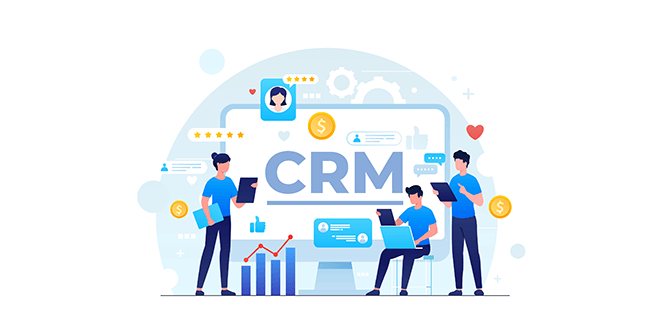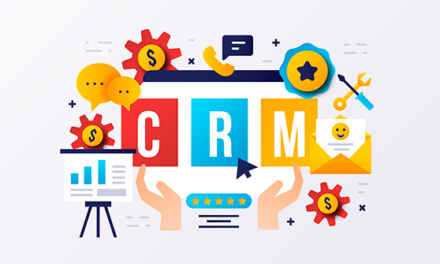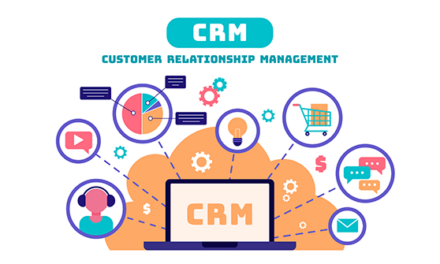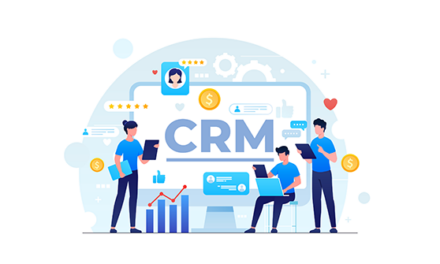Key Takeaways
- Various CRM solutions are available, each tailored to specific marketing, digital, and advertising agency needs.
- Key CRM features include robust client management, seamless integration, customizable workflows, advanced analytics, and scalability.
- CRM software benefits agencies by enhancing client management, streamlining operations, and improving team collaboration.
- Selecting the right CRM requires assessing specific needs, integration capabilities, customization, user-friendliness, and cost.
- CRMs like Salesmate, Monday.com, HubSpot, Keap, Nimble, Zoho, and Drag cater to different agency types with specialized features.
In today’s rapidly evolving landscape of digital marketing, advertising, and creative services, the significance of Customer Relationship Management (CRM) software has reached new heights.
As we embark on the journey through 2024, the quest for the most effective and efficient CRM solutions has become a top priority for agencies.
These organizations are constantly searching for CRM systems that streamline their operational workflows, significantly enhance the quality of their client relationships, and propel their business growth to new heights.
This article aims to explore the top 12 CRM options available for agencies in 2024. Each CRM system under review has been selected for its unique features, overall usability, and ability to meet the diverse and specific demands of various agency types.
Whether a small boutique agency is looking for an elegant solution or a large-scale enterprise needs a robust system, this article sheds light on the best CRM tools tailored to different agency needs.
We delve into how these CRM solutions can transform how agencies interact with their clients, manage projects, and harness data for strategic decision-making, ultimately leading to enhanced efficiency and business success.
- Why is CRM software essential for agencies?
- What makes a CRM exceptional for marketing agencies?
- 12 Best CRM for agencies (Marketing, digital, and advertising)
- How to set up and utilize a CRM in an agency?
- Features of the best CRM for agencies
- How to choose the best CRM for an agency?
- Benefits of CRM software for agencies
- Conclusion
Why is CRM software essential for agencies?
CRM software is vital for agencies as it is the backbone for managing client relationships and operational workflows.
It provides a centralized platform for tracking all client interactions, ensuring every team member can access up-to-date information.
What makes a CRM exceptional for marketing agencies?
The hallmark of an exceptional CRM for marketing agencies goes far beyond mere data storage of client information. It lies in its ability to integrate flawlessly with many marketing tools, creating a cohesive and efficient workflow.
CRM, a top-tier marketing agency, is designed to offer deep insights into client interactions, enabling agencies to tailor their strategies and communications effectively.
The best agency CRM is a central hub for all marketing operations, facilitating better decision-making and strategy development.
Moreover, the ideal agency CRM software should strike the perfect balance between comprehensive functionality and user-friendliness.
This balance ensures that the CRM can cater to the nuanced needs of marketing professionals while remaining accessible to all team members, regardless of their technical expertise.
Scalability is another critical factor. The best CRM for digital marketing agencies or the best CRM for advertising agencies should be able to grow with the agency.
Whether it’s a CRM for a small digital agency or a large advertising firm, it adapts to varying needs. This CRM enhances efficiency, making it an indispensable asset for any progressive marketing agency.
12 Best CRM for agencies (Marketing, digital, and advertising)
1. Salesmate: Best for all kinds of marketing agencies
Best for: Versatility across all types of marketing agencies
Salesmate is a versatile CRM that offers various features suitable for marketing agency needs, from sales tracking to client management.
Features
- Automated workflows
- Deal management
- Advanced Reporting
- Sales pipeline management
- Sales & marketing automation
- Lead scoring
- Contact management
- Shared team inbox
- Sequences
- Live chat
Pros
- Affordable CRM
- User-friendly interface
- Excellent customer support
- Robust automation capabilities
- Flexible and efficient system
Cons
- Occasional slowdowns during updates
- The email tracking feature could be more accurate
G2 Ratings
- G2 rates Salesmate 4.5 out of 5 stars based on user reviews.
Pricing
- Basic plan – $23/user/month
- Pro – $39/user/month
- Business – $63/user/month
- Enterprise – Contact sales team for enterprise pricing
2. Monday.com
Best for: Creative agencies
Monday.com stands out for its visual project management tools, making it ideal for creative agencies prioritizing project tracking and collaboration.
Features
- Visual project tracking
- Collaboration tools
- Offers accurate sales forecasting
- Provides personalized email template
Pros
- Highly intuitive interface
- Customizable workflows
- Excellent for team collaboration
Cons
- Essential features are only accessible by moving to a more expensive subscription tier.
- The analytics reports need visual elements for data representation.
G2 Ratings
- G2 rates Monday.com 4.7 out of 5 stars based on user reviews.
Pricing
- Basic CRM: $30 per month
- Standard CRM: $42 per month
- Pro CRM: $72 per month
- Enterprise CRM: Custom pricing
3. Insightly
Best for: Agencies focusing on analytics
Insightly offers robust analytics and reporting capabilities, making it a go-to CRM for agencies prioritizing data-driven insights.
Features
- Strong analytics tools
- Lead management
- Project tracking
Pros
- Comprehensive analytics
- Seamless integrations
- User-friendly interface
Cons
- Mobile apps are less intuitive than the desktop version.
Reviews
- G2 rates Insightly 4.2 out of 5 stars based on user reviews.
Pricing
- Plus – $29 per user /month
- Professional – $49 per user /month
- Enterprise – $99 per user /month
4. Podio
Best for: Agencies needing seamless communication
Podio specializes in streamlining communication within agencies, offering integrated chat features and task management.
Features
- Task management
- File sharing
- Integrated chat
- Offers add-ons designed for particular applications
Pros
- Easy coordination and collaboration
- Customizable workspaces
- Diverse app integrations
Cons
- Complex interface for beginners
- More expensive than other comparable tools
Reviews
- G2 rates Podio 4.2 out of 5 stars based on user reviews.
Pricing
- Plus – $11.20 per month
- Premium – $19.20 per month
5. Salesforce Sales Cloud
Best for: Large agencies requiring a comprehensive CRM solution.
Salesforce is a powerhouse in CRM solutions, offering a wide range of features for client management, marketing automation, and sales tracking.
Features
- Extensive client management tools
- Marketing automation
- Sales tracking
Pros
- Extensive customization options
- Lead management and scoring
- Powerful reporting
Cons
- No free plan
- More expensive than top competitors
- Complicated to set up and learn
Reviews
- G2 rates Salesforce Sales Cloud 4.3 out of 5 stars based on user reviews.
Pricing
- Starter – $24/user/month
- Professional – $80/user/month
- Enterprise – $165/user/month
- Unlimited – $330/user/month
6. Zoho
Best for: Integrating sales and customer service
Zoho CRM excels in integrating sales processes with customer service, offering a cohesive experience for agencies.
Features
- Sales automation
- Customer support integration
- Analytics
Pros
- Comprehensive feature set
- Strong integration capabilities
- User-friendly
Cons
- Some features are paid add-ons, not included in the price
- No drip campaign feature
Reviews
- G2 rates Zoho 4.4 out of 5 stars based on user reviews.
Pricing
- Free – Free
- Standard – $14 p/a – $20/user/month
- Professional – $23 p/a – $35/user/month
7. Keap
Best for: Small teams
Keap is tailored for smaller teams, offering a streamlined CRM experience with essential features for client management and marketing automation.
Features
- Client management
- Marketing automation
- Sales pipeline
Pros
- User-friendly
- Suitable for small teams
- Good automation capabilities
Cons
- Limited scalability for larger agencies
Reviews
- G2 rates Keap 4.2 out of 5 stars based on user reviews.
Pricing
- Pro – $159 /month
- Max – $229 /month
- Ultimate – $229 /month
8. Nimble
Best for: Social media integration
Nimble stands out for its strong social media integration, making it ideal for agencies heavily invested in social media marketing.
Features
- Social media insights
- Contact management
- Sales and marketing automation
Pros
- Efficient task management
- Easy to use
Cons
- Limited mobile app functionality
- Lack of Office 365 integration
Reviews
- G2 rates Nimble 4.5 out of 5 stars based on user reviews.
Pricing
- Nimble pricing starts at $24.90/user/month
9. EngageBay
Best for: Cost-effective all-in-one solution
EngageBay offers a range of CRM functionalities at an affordable price, making it a great all-in-one solution for budget-conscious agencies.
Features
- Email marketing
- Email Sequences
- Landing Pages
- Web Forms to capture online leads
- Free Live Chat Software
- Powerful helpdesk software
Pros
- Affordable
- Comprehensive feature set
- User-friendly
- Collaborative
Cons
- Integration issues
- Learning curve
- Takes time
Reviews
- G2 rates EngageBay 4.6 out of 5 stars based on user reviews.
Pricing
- Free – $0/user/month
- Basic – $12.74/user/month
- Growth – $55.24/user/month
- Pro – $101.99/user/month
10. Pipedrive
Best for: Sales-focused agencies
Pipedrive is designed for agencies with a strong focus on sales, offering tools that streamline the sales process and enhance pipeline management.
Features
- Lead generation
- Sales pipeline management
- Activity tracking
- Reporting
Pros
- Intuitive sales management
- Customizable pipelines
- Easy-to-use interface
Cons
- Limited advanced customization
- Mobile app improvements
Reviews
- G2 rates Pipedrive 4.2 out of 5 stars based on user reviews.
Pricing
- Essential – $9.90/user/month
- Advanced – $19.90/user/month
- Professional – $39.90/user/month
- Power – $49.90/user/month
11. HubSpot CRM
Best for: Comprehensive inbound marketing
HubSpot CRM is ideal for agencies focusing on inbound marketing, offering a wide range of tools from sales to marketing and customer service.
Features
- Live chat
- Meeting scheduler
- Website builder
- Sales automation
Pros
- Wide range of features
- Strong integration capabilities
- User-friendly
Cons
- It can be expensive as you scale and add more features.
Reviews
- G2 rates HubSpot 4.4 out of 5 stars based on user reviews.
Pricing
- Professional – Starts at $800/month
- Enterprise -Starts at $3600/month
12. Drag
Best for: Streamlined Email Management for Marketing and Digital Agencies
Drag is an innovative CRM solution that transforms Gmail into a collaborative workspace, ideal for marketing and digital agencies relying heavily on email communication.
Features
- Email-based CRM functionality
- Shared inboxes for team collaboration
- Task and project management directly within Gmail
- Integration with Google Workspace tools
- Customizable boards and workflows
Pros
- Seamlessly integrates with Gmail, offering a familiar interface for users
- Enhances email productivity with task management features
- Facilitates team collaboration with shared inboxes and boards
- Simplifies project tracking and client communication in a single platform
Cons
- Primarily focused on email management, which may not suffice for agencies needing extensive CRM features
- Limited functionality outside of the Gmail ecosystem
Reviews
- G2 rates Drag 4.5 out of 5 stars based on user reviews.
Pricing
- Free – $0user / month, billed yearly
- Starter – $8user / month, billed yearly
- Plus – $12user / month, billed yearly
- Pro – $16user / month, billed yearly
How to set up and utilize a CRM in an agency?
Setting up and effectively utilizing a CRM (Customer Relationship Management) system in an agency environment is a strategic process that requires careful planning and execution.
The initial step involves a thorough assessment of the agency’s specific needs, whether it’s for a digital marketing agency, a creative agency, or an advertising agency.
This assessment should consider various factors such as client management requirements, sales and marketing processes, and the need for integration with existing marketing software for agencies.
Once the needs are identified, the next phase is selecting the right CRM. It involves choosing a CRM that addresses the current requirements and has the scalability to grow with the agency.
For instance, the best CRM for a digital marketing agency might differ from that for an advertising agency regarding features like campaign management, analytics, or creative project tracking.
After selecting the appropriate CRM, the focus shifts to customization and integration. Customizing the CRM to align with the agency’s workflows, such as deal management or client communication processes, is crucial.
Integrating CRM with other tools and platforms, like digital marketing or advertising agency software, also enhances efficiency and data consistency.
Training and onboarding the team is another critical aspect. Ensuring that all members, from sales and marketing agencies to creative teams, are comfortable and proficient with the CRM is essential for its successful adoption.
It might involve creating user guides, conducting training sessions, and providing ongoing support.
Effective use of a CRM in an agency also involves regularly updating and maintaining the system. It includes adding new client information, updating project statuses, and utilizing the CRM’s analytics and reporting features to gain insights into client interactions and campaign performance.
Features of the best CRM for agencies
When identifying the best CRM for agencies, particularly in realms like digital marketing, advertising, and creative services, there are several features to consider.
These features are crucial in ensuring that the CRM not only meets the current demands of the agency but also supports its future growth and evolution.
Comprehensive client management
The CRM should offer robust tools for managing client information, including contact details, communication history, and project timelines. It is essential for CRM for digital marketing agencies and CRM for advertising agencies, where maintaining detailed client profiles is necessary.
Integration capabilities
A top CRM for agencies should seamlessly integrate with other tools and platforms, such as marketing software for agencies, digital agency software, and other sales and marketing tools. This integration helps streamline workflows and ensures data consistency across platforms.
Customizable workflows
The best agency CRM software should offer customizable workflows to suit the unique processes of different types of agencies. Whether it’s a CRM for creative agencies or digital agencies, the ability to tailor the software to specific operational needs is vital.
Advanced analytics and reporting
A CRM with advanced analytics and reporting capabilities is crucial for agencies, especially those involved in digital marketing and advertising. This feature allows for tracking campaign performance, understanding client engagement, and making data-driven decisions.
User-friendly interface
The CRM should have an intuitive and easy-to-navigate interface. It ensures that all team members, regardless of their technical expertise, can use the CRM effectively, which is particularly important in a fast-paced agency setting.
Scalability
The best CRM for a digital marketing agency or any agency should be scalable. As the agency grows, the CRM should accommodate increasing client loads, more complex projects, and additional users without compromising performance. Ensure to discuss this with your CRM developer so they can make room for future growth in your business.
How to choose the best CRM for an agency?
Choosing the best CRM for an agency involves a careful evaluation of several factors:
Assess agency needs
Understand the specific requirements of your agency. It could vary from needing a CRM for digital marketing agency operations to requiring a CRM for creative agencies. Identify the key processes that the CRM needs to support.
Evaluate feature set
Compare the features of different CRM options against your agency’s needs. Look for CRMs that offer strong client management, seamless integrations, customizable workflows, advanced analytics, and a user-friendly interface.
Consider agency size and scalability
Choose a CRM that matches the size of your agency and has the potential to scale. The best CRM for small agencies might differ from that for larger agencies in complexity and capacity.
Check integration compatibility
Ensure that the CRM can integrate with existing tools and software used by your agency. It is crucial for maintaining a streamlined workflow and avoiding data silos.
Read reviews and seek recommendations
Look at reviews from other agencies and seek recommendations. It provides insights into how the CRM performs in real-world scenarios and its effectiveness in agency settings.
Evaluate cost vs. value
Consider the CRM’s pricing in relation to its features and benefits. The best CRM for an agency should balance cost and the value it brings to your operations.
By thoroughly evaluating these aspects, agencies can make an informed decision in choosing a CRM that meets their current operational needs and supports their long-term goals and growth.
Benefits of CRM software for agencies
The adoption of CRM (Customer relationship management) Software brings many benefits to agencies, particularly those in digital marketing, advertising, and creative services.
These benefits are pivotal in enhancing operational efficiency, client relationships, and business growth.
Enhanced client management
CRM software for agencies, such as CRM for digital marketing agencies or CRM for advertising agencies, provides a centralized platform for managing client information.
This centralization allows easy access to client data, including contact details, communication history, and project specifics, leading to more personalized and effective client interactions.
Streamlined operations
Agency CRM software significantly streamlines various operational processes. It includes automating routine tasks, managing client portfolios, and tracking project progress.
For instance, a digital agency CRM can automate campaign reporting, while a CRM for creative agencies might streamline project timelines and resource allocation.
Improved communication and collaboration
A CRM for agency use often includes tools that facilitate better communication and collaboration within the team.
Features like shared calendars, task assignments, and real-time updates help keep everyone on the same page, which is crucial in fast-paced agency environments.
Data-driven insights
The best CRM for agencies offers robust analytics and reporting tools. These features enable agencies to track campaign performance, monitor client engagement, and analyze marketing effectiveness.
For marketing software for agencies, this means being able to deliver data-driven insights to clients, enhancing the value of services offered.
Increased productivity and efficiency
By automating mundane tasks and organizing client data, CRM software for agencies helps boost overall productivity and efficiency.
Teams can spend more time on creative and strategic tasks rather than bogged down by administrative work.
Better client retention and acquisition
Agencies can expect better client retention rates with improved client management and enhanced service delivery. Additionally, the insights provided by CRM software can help identify new business opportunities and strategies for client acquisition.
Conclusion
In conclusion, the landscape of CRM solutions for agencies is diverse and rich, with options tailored to various needs, from digital marketing to creative services.
While each CRM offers unique strengths, from seamless integration and user-friendly interfaces to advanced analytics and customization, agencies must consider their specific requirements and growth potential.
The right CRM can significantly enhance client management, streamline operations, and drive business growth. Still, it’s crucial to weigh the features against the cost and ensure the chosen CRM aligns with the agency’s long-term objectives and workflow demands.




